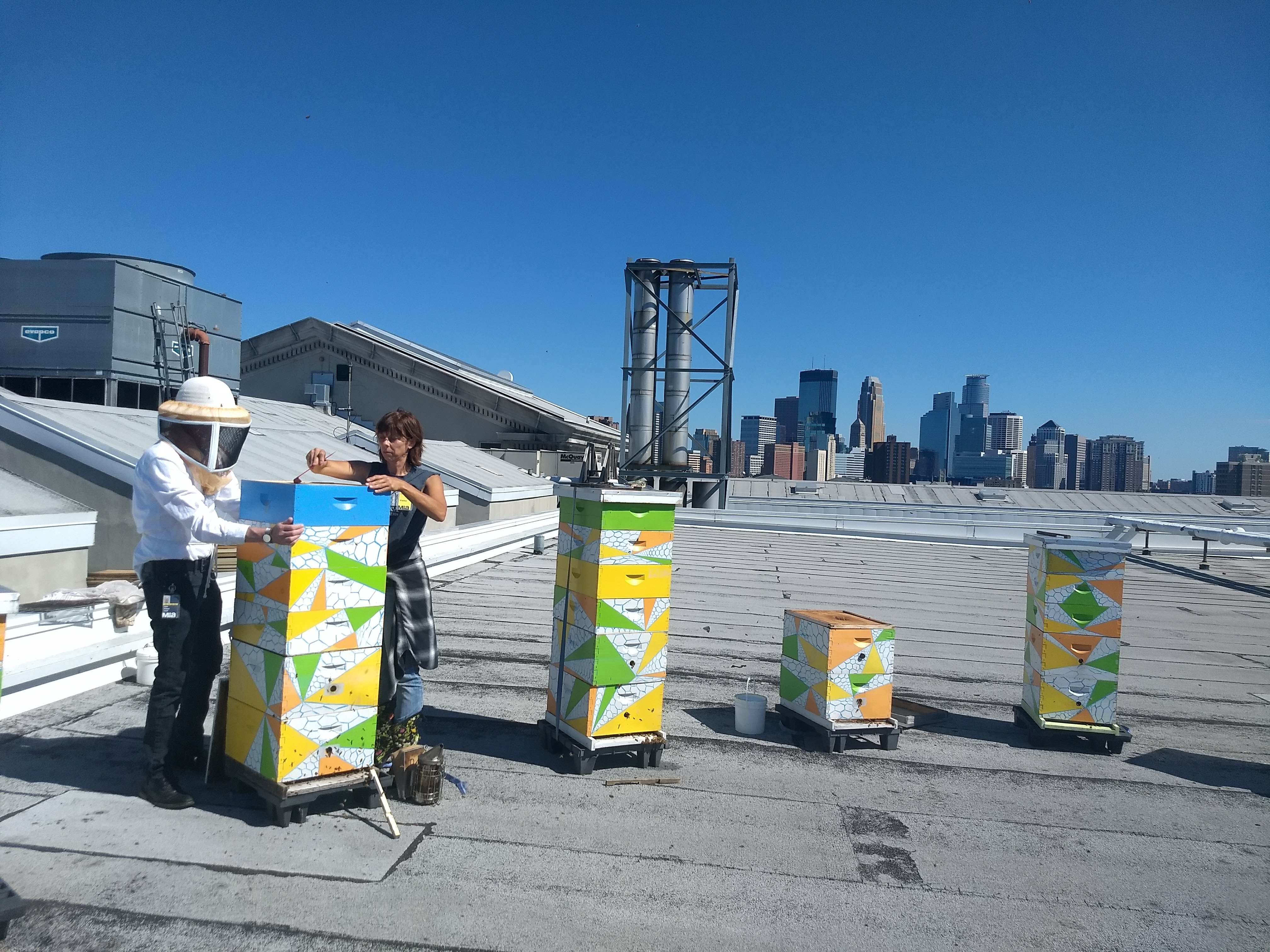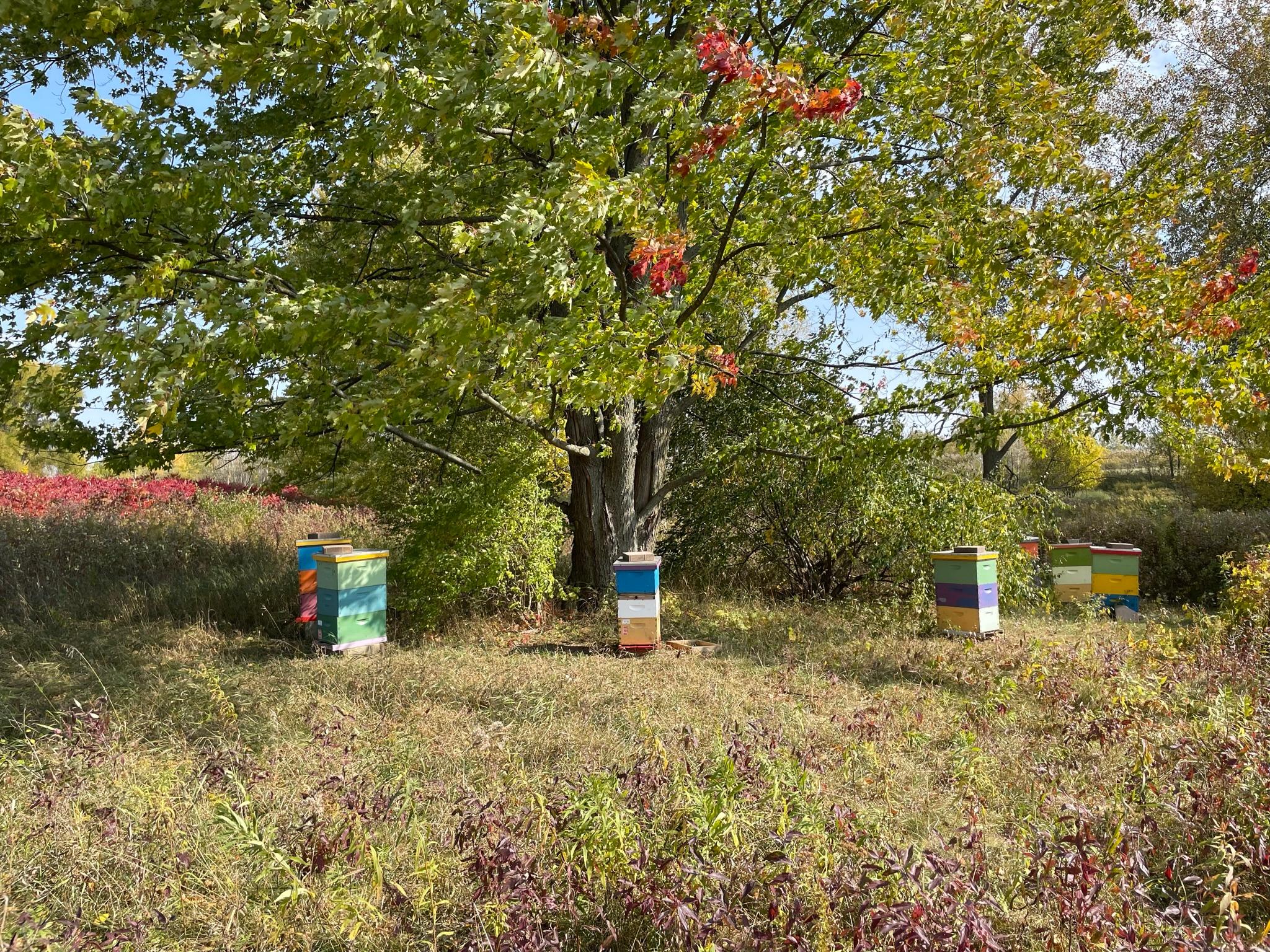
Understanding city beekeeping ordinances
November 14, 2023 - Meghan Milbrath, Heather Chapman, Ana Heck
Originally published: November 14, 2023
Last updated: December 20, 2023
Do you want to keep bees but are not sure if beekeeping is legal in your city? It is important to check your local city ordinances to see what restrictions exist for your area, if any. There are no restrictions or regulations for beekeeping at the state level in Michigan. Beekeepers who sell honey, bees, or hive products are covered under the Right to Farm Act. More information can be found at the Michigan Department of Agriculture (MDARD) Michigan Right to Farm Program. If you are keeping bees in a town or city with fewer than 100,000 residents and making money from your bees, the Right to Farm Act supersedes your town and city restrictions.
If your city has a beekeeping ordinance in place, it may:
- permit or prohibit beekeeping.
- require registration or a permit.
- require a certain lot size.
- vary based on land zoning.
- require setbacks of fencing.
- limit the number of honey bee colonies allowed.
- include other requirements related to honey bee colony management.
If there is not a written ordinance, beekeeping will be permitted or prohibited based on your city or township’s interpretation, and there may be unwritten expectations. Keep in mind public nuisance ordinances may apply to beekeeping.

Find your local ordinances
There are many ways to find your city’s current ordinances on beekeeping.
Search online
A city’s code of ordinances can often be found via an online search, usually through the city’s website. A code of ordinances may include an immense amount of information. Focus the information by searching the document for terms to find the section related to beekeeping. Beekeeping may not have its own section within the document, so be sure to check the information related to animals as it may list regulations related to honey bees. If there are specifics related to beekeeping, the regulations and restrictions will be listed. Search terms that may lead to ordinances that affect beekeeping include "honey bee", "honeybee", "beekeeping", "bee keeping", "bees", "pets", "colony", "hive", "livestock", and "animals".
Contact your local city government
Call your local city hall, city clerk, or city council members. People in these positions should be able to provide information on beekeeping regulations or direct you to someone with the information. Local city government’s contact information can be found online or in person at your local city hall or clerk’s office.
Contact a local beekeeping association
Many beekeeping associations are already familiar with the area’s regulations and restrictions and may even have current documentation on the ordinances on hand. Be sure that any information received is up to date and relevant to your specific area.
Even if there are ordinances in place for your area, ensure your beekeeping operation limits disturbances to neighbors and others in your community to prevent your hives from becoming a nuisance. Actions may include placing the hives away from people and roads, directing flight paths away from people, deterring swarms, and providing a consistent water source. Prevention is key to avoid future issues and nuisance complaints against your bees. Michigan maintains guidelines on this topic in their Generally Accepted Agricultural management practices (GAAMPs). Honey bee guidelines are in the “Care of Farm Animals” GAAMP.

How local beekeeping ordinances are changed or established
Many cities have adjusted their policies to allow residents to keep bees, and the change is often led by a handful of people. If you are interested in working with your city council on a beekeeping ordinance, it is useful to understand how city policy is made and changed.
Have one point person
One strategy is to designate a point person to communicate with and propose ideas to the city council. This person will be the point of contact with the council, schedule discussions with beekeepers, and keep track of meetings and follow ups. Designating an organized point person who is a clear communicator will help maintain consistency and help deliver information in a timely manner and in clear language for all parties involved to understand.
Be prepared
Do your research on other nearby areas that have beekeeping ordinances. Find out details of the regulations and how the policies were developed. Talk with others who have worked towards local regulation changes. You can use other policies and their integration of beekeeping as an example for the city council to construct your city’s ordinance. It is much easier for city councils to work with existing policies and their integration plan than to develop their own regulations entirely. The Minnesota Hobby Beekeepers Association has created a model beekeeping ordinance as a framework for creating new policies. Additional information on local ordinances in Michigan cities can be found through the Michigan Ordinances & Code. Examples of beekeeping friendly policies in Michigan:
- City of Ypsilanti Beekeeping Ordinance
- City of Grand Rapids Beekeeping Ordinance
- City of Holland Beekeeping Ordinance, requires a permit
- City of Grand Haven Beekeeping Ordinance
- City of Muskegon Beekeeping Ordinance
Get others involved
Spread the word to get others involved in your efforts. Local beekeeping clubs are often great groups to contact for support and resources. Beekeeping clubs can also provide input so that local policy changes make sense for your area. In Michigan, a list of local beekeeping clubs is maintained by the Michigan Beekeepers Association. Garden clubs and Extension Master Gardeners may also be supportive partners. Try to enlist a diverse group of people to support your changes and speak on your behalf.
Educate people on the risk of stings
Your city council may be concerned about the risk to their citizens and about the complaints that they may receive. Council members have to deal with concerned citizens, so do them a favor and arm them with facts. The more information they have, the better they can educate others. Often the major hurdle is not the actual risk of honey bees, but the perceived risk. Come prepared with handouts and photos explaining the difference between yellow jacket wasps and honey bees and with facts on the frequency of honey bee stings.
Invite an expert
An expert can attend in person or virtually or be available to answer specific questions from council members. Contact your local extension office and see if they can refer you to a honey bee extension specialist. If you would like assistance in Michigan, reach out to the experts at Michigan State University (MSU). MSU Extension educators and specialists cannot advocate for policy, but they can provide background and education on risks and similar policies in the state.
For more information on honey bees and beekeeping, visit Michigan Pollinator Initiative's website.
If you reside in Michigan and have questions about honey bees and beekeeping, submit your questions to Ask Extension.



 Print
Print Email
Email





